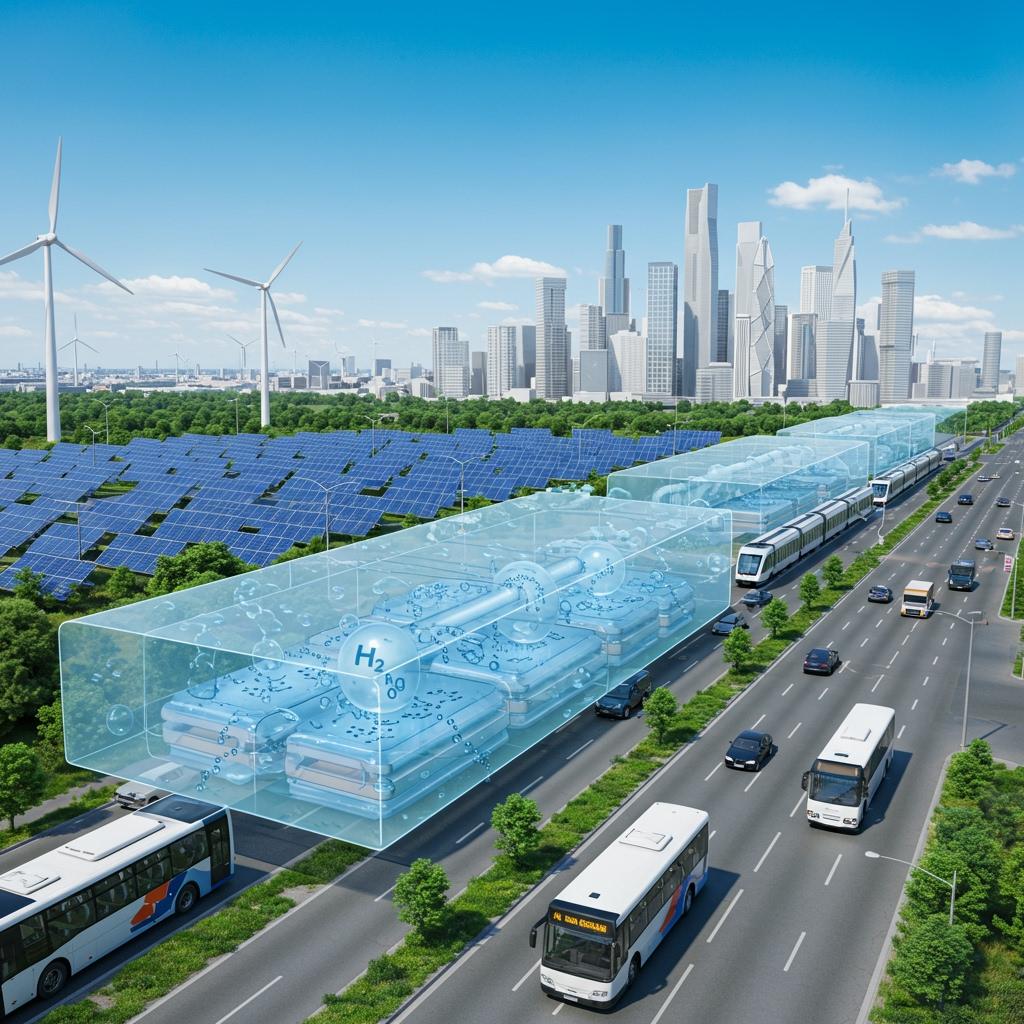How Hydrogen Could Power the Entire Planet
Hydrogen: The Invisible Fuel That Could Run the World
By Peter Teoh, Science Writer
 Imagine a city where cars, buses, and even skyscrapers run on clean hydrogen—water is the only exhaust!
Imagine a city where cars, buses, and even skyscrapers run on clean hydrogen—water is the only exhaust!
Picture a world where cars don’t puff out smoke, factories don’t cloud the sky, and the only thing coming out of tailpipes is pure water. Sounds like science fiction? It’s not. Meet hydrogen—the simplest, lightest, and most abundant element in the cosmos. Scientists and engineers believe hydrogen could be the superstar of clean energy, powering everything from your phone to entire cities. But how does it work? And could it really replace fossil fuels? Let’s dive in.
What Is Hydrogen, Anyway?
Hydrogen is the first element on the periodic table. It’s everywhere—in water, in the air, even in your body. But here’s the catch: hydrogen almost never exists alone in nature. It’s usually stuck to other atoms, like oxygen in water (H₂O). To use hydrogen as fuel, we have to “free” it from these molecules, which takes energy. The big idea? Use clean energy (like wind or solar) to make hydrogen, then use that hydrogen to power stuff—with zero pollution.
How Do Hydrogen Fuel Cells Work?
A hydrogen fuel cell is like a battery that never runs out—as long as you keep feeding it hydrogen and oxygen1. Inside the fuel cell, hydrogen gas enters at one end (the anode), and oxygen from the air enters at the other (the cathode). A special membrane sits in between. Here’s the magic: a catalyst (often platinum) splits the hydrogen into protons and electrons. The protons zip through the membrane, while the electrons are forced to travel around it, creating an electric current—that’s the power! Meanwhile, at the cathode, the protons, electrons, and oxygen combine to make… water. That’s it. No smoke, no soot, just H₂O and a little heat14.
Why Is Hydrogen So Exciting?
Hydrogen fuel cells are super efficient. They convert chemical energy directly into electricity, with much less waste than burning gasoline or coal4. They’re also quiet and reliable, with no moving parts to break down1. And unlike batteries, which can take hours to recharge, you can refuel a hydrogen vehicle in minutes—just like filling up your car with gas, but cleaner4.
Could Hydrogen Really Power the Planet?
Right now, most hydrogen is made from natural gas, which isn’t exactly green. But the dream is to make “green hydrogen” using renewable electricity to split water. If we could pull that off at a huge scale, hydrogen could replace fossil fuels in cars, trucks, ships, planes, and even power plants[5][6]. Imagine a world where every vehicle, every factory, every home runs on hydrogen made by the sun and wind. The only exhaust? Water vapor. That’s a planet with clean air, quiet cities, and a stable climate.
But there are challenges. Storing and transporting hydrogen isn’t easy—it’s super light and likes to escape. Fuel cells and hydrogen tanks are still expensive. And we’d need a massive build-out of renewable energy to make enough green hydrogen. Still, countries and companies are racing to solve these problems, with hydrogen buses, trucks, and even airplanes already in testing1.
Hydrogen isn’t a magic bullet, but it’s a serious contender in the race to save the planet. With smart science, bold engineering, and a lot of clean energy, hydrogen could help us kick our fossil fuel habit for good. The future might just be a breath of fresh (hydrogen-powered) air.
Side Notes
- Hydrogen is the lightest element, but it packs a punch: One kilogram of hydrogen contains about three times more energy than a kilogram of gasoline.
- Water, water everywhere: If we used hydrogen everywhere, the only “waste” would be water—imagine rivers of clean water flowing from power plants!
- Space tech, Earth future: NASA has used hydrogen fuel cells in space missions since the 1960s—now, that tech could help us on Earth.
Trending Sidebar
Hot Topics in Hydrogen
- Green Hydrogen Boom: Countries are investing billions to make hydrogen with wind and solar power.
- Hydrogen Planes: Airbus and other companies are testing hydrogen-powered aircraft for zero-emission flights.
- Hydrogen Cities: Some cities are already running buses and taxis on hydrogen—could your town be next?
Leave a comment